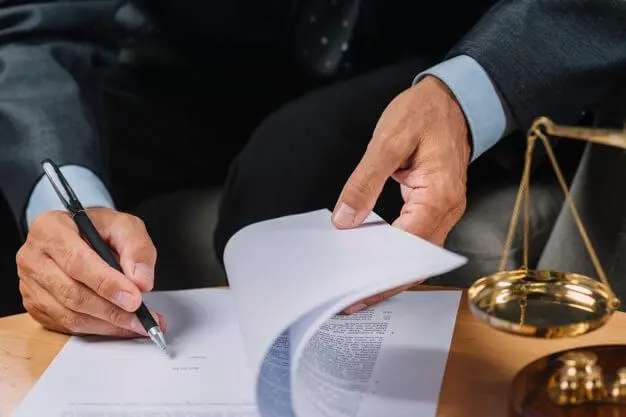Let’s be honest. The EB5 visa process is not for the faint of heart—or the disorganized. You’ve committed to investing a minimum of $800,000 in a U.S. enterprise. The promise? A green card, permanent residency, and a new life in the United States.
But between you and that American dream? A labyrinth of legal documents, USCIS regulations, source-of-funds audits, and project due diligence that makes most people’s heads spin.
That’s where your EB5 visa attorney comes in.
But not just any attorney.
Because the truth is: not all immigration lawyers are equipped for EB5 cases. This is a high-stakes, high-complexity area of law that requires precision, transparency, and—frankly—a lawyer who knows how to spot a scam from 10,000 feet.
So how do you find the right one?
Experience, Not Just a Law License
Sure, every EB5 lawyer has a JD (law degree). That’s the bare minimum. What you’re looking for is someone with a deep track record in EB5-specific cases.
Ask:
- How many EB5 petitions have you filed?
- What percentage have been approved?
- Do you handle both direct and regional center investments?
- Have you represented clients from my country of origin?
Bonus points if they’ve worked on both sides of the equation—investor and regional center. It shows they know the ecosystem inside out.
Real Knowledge of EB5 Policy Shifts
The EB5 program has gone through more rewrites than a Hollywood script. From changing minimum investment amounts to the reauthorization of the regional center program, the legal terrain is always shifting.
A great EB5 visa attorney doesn’t just “keep up”—they anticipate.
You want someone who:
- Understands how the 2022 Reform and Integrity Act impacts your petition
- Can explain the implications of visa backlog for your country
- Is tracking legislative proposals that could affect your timeline
If your lawyer can’t explain the difference between TEA and non-TEA investments without checking notes—run.
Source of Funds Mastery
Here’s where good petitions often go bad.
USCIS requires that every dollar of your EB5 investment be legally obtained—and that it can be traced step by step from its origin to the project.
That means:
- Bank transfers? Documented.
- Property sales? Contracts, valuations, and tax receipts included.
- Gifts or inheritance? Affidavits, identity documents, and tax compliance proof.
You need a lawyer who’s been through these audits before and knows how to bulletproof your Source of Funds (SoF) report.
No shortcuts. No surprises. No ambiguous trails.
Networked with Reputable EB5 Projects
Let’s be clear: your lawyer should never sell you on a specific investment project. That’s a red flag.
But a seasoned EB5 attorney will have:
- Experience vetting project structures
- Working knowledge of which regional centers have a solid reputation
- A sense for which offerings tend to raise red flags with USCIS
They should help you ask the right questions about a project—not steer you toward the one offering the highest “referral fee.”
Look for transparency. If they’re paid by a project, they should disclose it—period.
Clear Fee Structures (No Hidden Surprises)
EB5 legal fees vary, but they’re not pocket change. You should expect:
- A flat fee for I-526E or I-526 petition preparation
- Separate pricing for I-485 Adjustment of Status (if applying inside the U.S.)
- Extra charges if Requests for Evidence (RFEs) or Notices of Intent to Deny (NOIDs) are issued
Make sure your EB5 visa attorney gives you a written fee agreement. Ask whether costs include SoF documentation support, translation services, and USCIS filing fees—or if those are billed separately.
Communication That Actually Happens
Immigration timelines are long. You’ll have questions. Things will change. Silence is not an acceptable client experience.
Your attorney should offer:
- Response times (e.g., “within 48 hours”)
- A dedicated point of contact (not just a paralegal inbox)
- Updates at key milestones (like when your petition is filed, or if USCIS responds)
Pro tip: Ask current or past clients how communication actually worked. Was the lawyer hands-on or MIA?
Global Perspective, Local Expertise
The EB5 visa is a U.S. immigration program, yes—but its investors are global. Your lawyer should understand the financial regulations, capital transfer restrictions, and documentation nuances in your home country.
Example: Proving legal source of funds is dramatically different for an entrepreneur in India than for a landowner in Vietnam or a business owner in Brazil.
A smart EB5 visa attorney anticipates these issues upfront—before your petition lands in front of USCIS.
Final Thoughts: Choose Slow, Win Fast
Look, this isn’t about just “getting it done.” It’s about getting it right.
The EB5 process is one of the most powerful immigration tools available—when handled properly. But the margin for error is small. One missing document, one suspicious source of funds transaction, one poorly structured investment—and you’re back at square one (with a lot less money).
So take your time. Ask tough questions. Vet your attorney like your future depends on it.
Because in many ways, it does.






